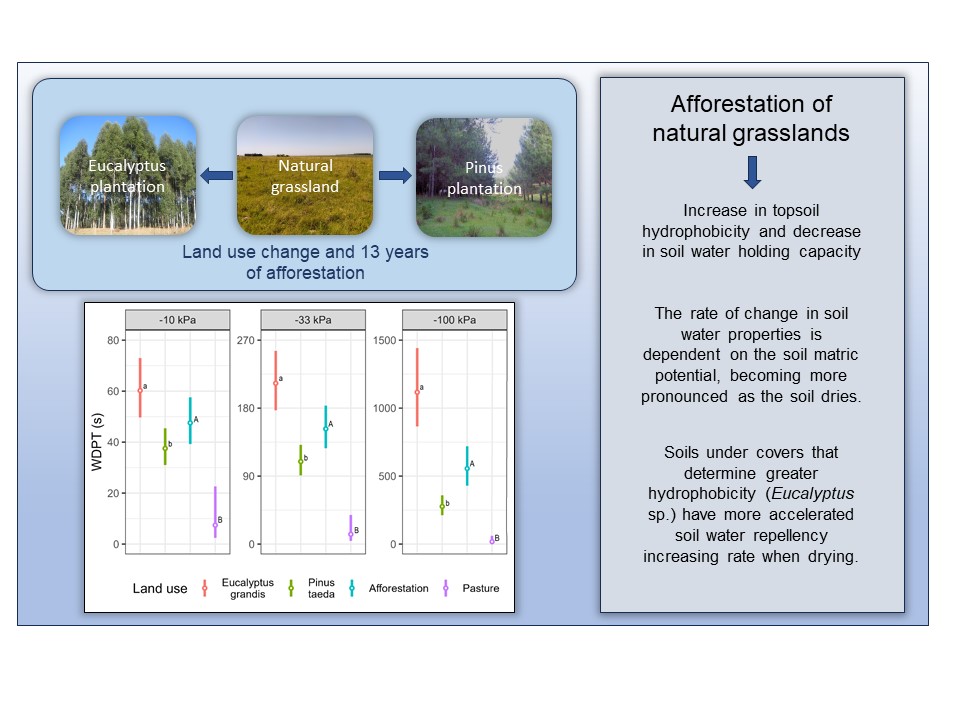Differential effects on soil water repellency of Eucalyptus and Pinus plantations replacing natural pastures
11/mar/2024
ABSTRACT Land-use changes from native pastures to forest plantations in humid temperate areas have raised concerns about their potential impact on the environment. This study aimed to assess the effects of such changes on soil water properties, focusing on the impact of the forest species planted and their relationship with changes in soil C content. Specifically, we aimed to identify the development of surficial soil hydrophobicity and changes in soil water holding capacity. A long-term forest experiment with variable planting […]
Aggregate Stability in Soil with Humic and Histic Horizons in a Toposequence under Araucaria Forest
01/abr/2017
ABSTRACT Aggregate stability is one of the most important factors in soil conservation and maintenance of soil environmental functions. The objective of this study was to investigate the aggregate stability mechanisms related to chemical composition of organic matter in soil profiles with humic and histic horizons in a toposequence under Araucaria moist forest in southern Brazil. The soils sampled were classified as Humic Hapludox (highest position), Fluvaquentic Humaquepts (lowest slope position), and Typic Haplosaprists (floodplain). The C and N contents […]
Caracterização química e espectroscopia de infravermelho da matéria orgânica de dois solos do sul do Brasil
01/fev/2003
A matéria orgânica de horizontes superficiais de dois solos (um Latossolo e um Chernossolo) foi caracterizada em amostras não tratadas (in situ SOM) e em amostras tratadas com HF (SOM) por análise elementar, espectroscopia infravermelho com transformada de Fourier por reflectância difusa (DRIFT) e por transmissão (T-FTIR). Ácidos húmicos (HA), ácidos fúlvicos (FA) e humina (HU), isolados da SOM, foram caracterizados também por espectroscopia UV-VIS. A técnica de DRIFT mostrou-se mais informativa do que a de T-FTIR na detecção da […]

